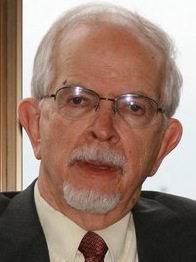The mainstream media does not know it, and far too many high steeple church folk do not want to know it.
But in Tampa, Florida, this week, the General Conference of the United Methodist Church will make a decision.
They will spend the week writing and rewriting. Some, like Alissa Bertsch Johnson, a campus minister at Washington State University (at right), will passionately state their case .
Before the gavel falls on the last session of the 2012 General Conference, the people called Methodists will have responded, one way or another, to the call from Palestinian Christians that they take one small step toward ending the Israeli Occupation.
They may vote to endorse a targeted divestment resolution.
Or, they may declare that such action is not needed, forgetting that in doing so, they follow the path of those segregation-tolerating Birmingham church leaders who wrote to Martin Luther King, Jr., in words to this effect, "it is too soon to attack this evil. We must wait until our people are with us."
A half century since King died in his battle with the evil of racism, we are still waiting for the end of yet another manifestation of racism, one which continues to be tolerated, and even worse, financially sponsored, by the spiritual heirs of those earlier Birmingham church divines to whom King wrote his historic letter from a Birmingham jail.
In Martin Luther King, Jr's, time, the "go slow" church leaders tolerated the evil that was in Selma, Alabama, the suburbs of Chicago, and the dark, frightening country roads of Mississippi.
In our time, "go slow" religious leaders refuse to see the evil of a so-called security barrier, a wall built not for Israel's security, but as a land-stealing, prison enclosure, of the Palestinian people.
The "go slow" church leaders, and the parishioners they lead, choose not to acknowledge that the evil of Selma, Alabama, the South Side of Chicago, or the country roads of Mississippi, are still with us in Palestine where US church funds are used to build and maintain an Occupation.
The final United Methodist divestment vote will involve a resolution that instructs the church's financial managers to divest from three American corporations that have refused to cease from profiting from the Occupation.
Israel's supporters who have infiltrated the United Methodist legislative body, both as delegates and observers, are waging the divestment effort with half truths and outright lies, the same tactic used by secular politicians for whom truth-speaking is an unknown language.
During the first week of the General Conference, delegates met in committees and sub-committees to hassle over the wording of the final resolution. Occupation supporters want language in the resolution they can spin in their favor.
Above all, they want to remove the term "divestment," which evokes the image of Israel as a modern day South Africa. In the past, one way to avoid this image is to employ evasive language like "constructive engagement."
The winner of the resolution game will be the side that can spin the final action with its own special twist that produces a victory headline.
(Note: You can view every article as one long page if you sign up as an Advocate Member, or higher).






